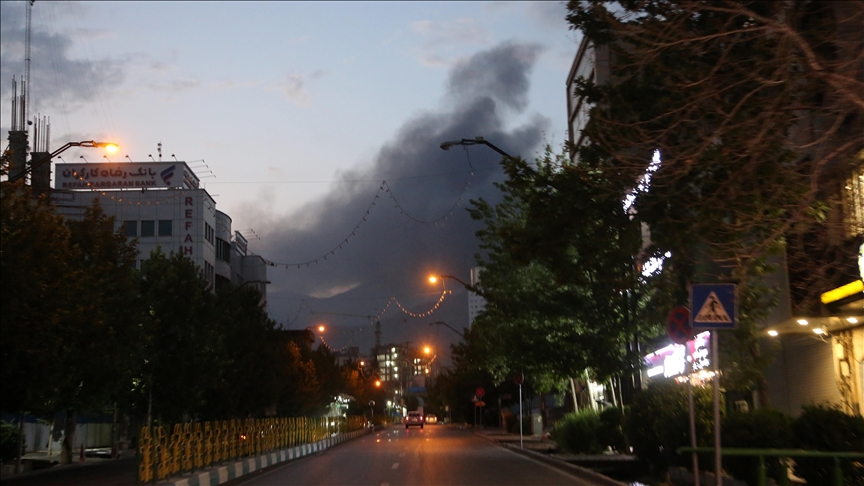Growing tensions in the Middle East are intensifying concerns about inflation and the looming threat of recession as the conflict between Israel and Iran escalates. Following a series of large-scale military strikes initiated by Israel on June 13, which primarily targeted Iran’s military command and nuclear facilities, the situation took a dramatic turn when Iran retaliated by launching 370 ballistic missiles. As both nations exchange attacks, investors and global markets are left on edge, uncertain about the duration and impact of this conflict.
Central to the anxiety surrounding this escalation is the potential disruption of the Strait of Hormuz. This vital waterway is responsible for transporting nearly one-third of the world’s oil and liquefied natural gas (LNG). Any conflict that might lead to its closure poses the risk of significant supply shocks across various industries, particularly manufacturing, which relies heavily on stable energy supplies.
The immediate financial repercussions of the Israel-Iran conflict have already become apparent. The price of Brent crude oil surged by 11.1%, reaching $73.7 per barrel—the largest weekly increase since October 2022. Similarly, natural gas prices in Europe saw an uptick; for instance, the Dutch virtual trading hub TTF reported a 3.2% rise in the price of gas per megawatt-hour for July contracts.
Joachim Nagel, the president of Germany’s Bundesbank, cautioned that, while the immediate effects on oil prices are significant, the longer-term implications of the conflict remain highly uncertain. This underscores the volatility that often accompanies geopolitical tensions, particularly in regions that are pivotal to global energy supplies.
As analysts delve deeper into these market movements, the overarching fear grows that a potential crisis in the Strait of Hormuz could derail the post-pandemic global economic recovery. This sentiment is particularly troubling as economies around the world were beginning to show signs of rejuvenation following the severe impacts of the COVID-19 pandemic.
In examining historical precedents, echoes of the 1973 oil shock remind us how past conflicts have reshaped global markets. During the Yom Kippur War in October 1973, Arab countries led by Egypt and Syria retaliated against Israel’s occupation of territories. This led to an oil embargo imposed by the Organization of Arab Petroleum Exporting Countries, causing a staggering 400% increase in oil prices. Such shocks had severe downstream effects, causing major industrialized nations—including the United States—to grapple with rampant inflation and production issues.
The consequences of this historical oil shock manifested in various ways, from significant shifts in consumer behavior to robust policy changes aimed at reducing dependence on oil. The 1974 economy saw the U.S. impose a national speed limit and invest in alternative energy sources, showcasing how crises can spur innovation and transformations in energy policy.
Current events indeed carry a worrisome resemblance to those historical moments. With inflation already a pressing issue in many parts of the world, the potential for rising oil and natural gas prices could exacerbate existing inflationary pressures. As costs soar, there is fear that consumer spending might decrease, leading to slower economic growth and possibly a recession.
Indeed, the inflation-recession dilemma is intensifying. Investors are left pondering not just how high energy prices will climb but also what the broader implications for global economic stability will be. Many key macroeconomic indicators will likely feel the impact, and industries across the board should brace for shifts in consumer behavior as prices rise.
The uncertainty surrounding the current situation is palpable. Financial markets thrive on predictability, and when geopolitical tensions arise, this predictability is often replaced with volatility and fear. Investors worried about inflation might start to shift their portfolios, favoring safe-haven assets such as gold or U.S. Treasuries, which could further influence market dynamics.
The global economy stands at a pivotal moment, grappling with the implications of a conflict that has far-reaching effects. As the situation develops, how leaders and policymakers respond will be crucial in determining whether nations can contain the fallout of this conflict and avoid the dual impact of inflation and recession.
As inflation threatens to spiral out of control and recession looms on the horizon, it is imperative that countries adopt a proactive approach to navigate the complexities of geopolitical tensions. With the specter of the Israel-Iran conflict looming large, the world watches closely as developments unfold, hoping for a swift resolution that ensures stability in global energy supplies and economic recovery.
In summary, the current situation between Israel and Iran serves as a stark reminder of how geopolitical conflicts can rapidly influence global markets and economies. The implications are profound, not only for the nations directly involved but for the entire international community as it grapples with the growing inflation-recession dilemma. As we move forward, maintaining an informed perspective on these developments is crucial for both investors and policymakers alike.
Source link










